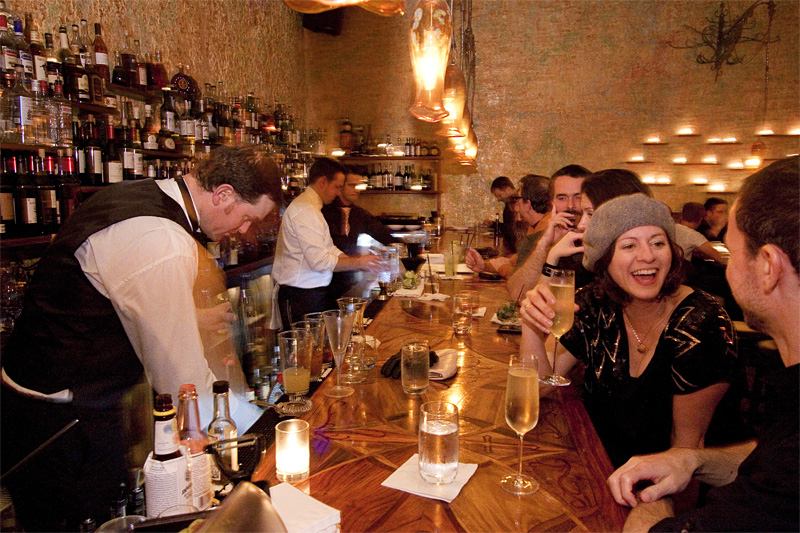Over the past two decades, Greg Atkinson has become one of the strongest voices in shaping Pacific Northwest cuisine, both for restaurants and home cooks. As the chef of Friday Harbor House and Canlis, he refined an approach to fine dining that was grounded in the lands and seas around us. In his work as a columnist, cookbook author, and KUOW presence, he has invited all of us into his kitchens. As Pellegrini Award judge Chris Curtis says, “We chose Greg not only because he has been such a strong proponent of local food for such a long time, and because he’s a great writer, but also because he is a generous, gracious, genuinely nice person.”
Atkinson’s approach to cooking and food writing grew out of his experiences as the chef of the 14-seat Friday Harbor House from 1986 to 1996. “Working in that remote place, it was always a challenge to get good product,” he says. “So long before I knew anything about sustainability or the locavore movement, I was just seeking out local farmers and fishermen because I didn’t like the stuff that came up on a truck.”
Until then, Atkinson had considered cooking the job that funded his fiction writing. But in 1987, he began writing a weekly column for the Journal of the San Juan Islands. His fodder: the experience of searching out seasonal ingredients and figuring out what to do with them. “That really shaped my food sensibility and gave me material for my stories,” he says. “I would write about the people who brought the food, and the food they brought me. I would write about going down to the docks to find spot prawns or into the old abandoned orchards to gather apples.” Those columns were first turned into such books as In Season and The Northwest Essentials Cookbook; then in the 1990s he started writing the “Taste” column in The Seattle Times’ Pacific Northwest Magazine, which he continues to this day.
Atkinson captured Seattle’s attention when the Canlis family hired him in 1996 to update their 1950s-era menu, first as consultant, then as head chef. He says that part of his agenda during his six-year tenure at Seattle’s most luxurious restaurant was to supplant the jet-age delight in flying in food from all over the world to a postindustrial respect for food tied to place. Mark Canlis agrees. “One of his most influential roles has been to make provenance popular. Atkinson has one hand on his All-Clad and one in the dirt. He’s a storyteller, and he tells stories with his cooking.”
That mission has carried through to his later work with children at IslandWood, Bainbridge Island’s environmental education center; his restaurant consulting; and now to Seattle Central Community College, where he is an instructor at the culinary academy. When I asked him what he most tries to teach his students, his response reminded me of the opening statement of 1997’s In Season: “I have always cooked primarily to please people.”
“Food is one of life’s first and last pleasures,” he says. “I think we’re an anti-sensory culture, and this is one place where we’re allowed to practice sensuality. Food appeals to us in the way it looks, it smells, it sounds, it crunches—everything about it is sensory. It’s easy to get out of touch with our senses, to eat unconsciously while we’re doing something else. My father used to use the phrase ‘get a bite to eat.’ And it always used to annoy me. I don’t want to grab a bite to eat. I want to stop and eat, and nothing other than that for at least a few minutes.”





